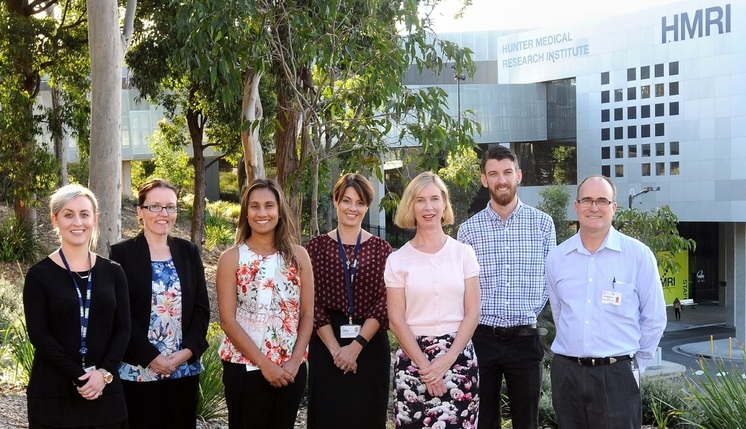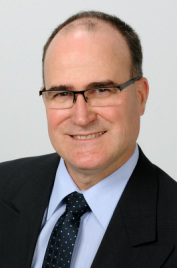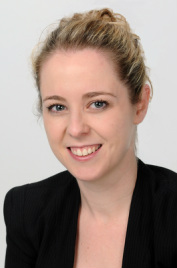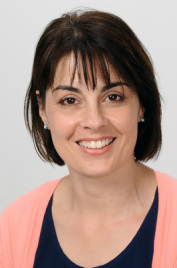
Clinical researchers (L to R) Tenele Smith, Kathy-Lee Holmes, Natalie Govind, Megan Paterson, Dr Carmel Smart, Jordan Rafferty, A/Prof Bruce King. Absent: Dr Prudence Lopez, Dr Peter Howley, Amy Crawford
 Professor Bruce King is a Senior Paediatric Endocrinologist at John Hunter Children’s Hospital, Newcastle. Bruce is part of a team that has innovated paediatric diabetes management. The team has focused on achieving good diabetes control while maintaining quality of life and minimising the impact of diabetes on families. Bruce is the secretary of the APEG diabetes subcommittee, chair of the Diabetes NSW Children’s Services Committee, member of the Australian Type 1 Diabetes Clinical Research Network, and board member of Diabetes NSW. Bruce’s research has been directed by questions raised by patients and their families. This research has focused on factors that cause BGLs to go high after meals. This research has been published in journals including Diabetes Care, Diabetes, Diabetes Medicine, BMJ online and Paediatric Diabetes. Bruce is now focused on the development of the closed loop insulin pump. He believes that the development of this technology will lead to significant improvement in the lives of people living with diabetes.
Professor Bruce King is a Senior Paediatric Endocrinologist at John Hunter Children’s Hospital, Newcastle. Bruce is part of a team that has innovated paediatric diabetes management. The team has focused on achieving good diabetes control while maintaining quality of life and minimising the impact of diabetes on families. Bruce is the secretary of the APEG diabetes subcommittee, chair of the Diabetes NSW Children’s Services Committee, member of the Australian Type 1 Diabetes Clinical Research Network, and board member of Diabetes NSW. Bruce’s research has been directed by questions raised by patients and their families. This research has focused on factors that cause BGLs to go high after meals. This research has been published in journals including Diabetes Care, Diabetes, Diabetes Medicine, BMJ online and Paediatric Diabetes. Bruce is now focused on the development of the closed loop insulin pump. He believes that the development of this technology will lead to significant improvement in the lives of people living with diabetes. Dr Carmel Smart is a Senior Paediatric Diabetes and Endocrine Dietician. Carmel is part of an innovative team working towards normalising the lives of children with Type 1 diabetes. As a clinician and researcher Carmel sees both the practical and theoretical aspects of Type 1 diabetes, and is making significant inroads into understanding the disease for her patients and their families. She is the lead author on the 2014 International Nutrition Care Guidelines for children and adolescents with type 1 diabetes. In 2013 Carmel won the prestigious Australasian Paediatric Endocrine Group Investigator of the Year Award for her research into how dietary fat and protein influence the calculation of meal-time insulin dosages for children with type 1 diabetes. Carmel also received a Diabetes Australia Research Trust grant (2013) to continue her research into developing an insulin dosage algorithm for meals of variable macronutrient composition. The consumption of different types of meals in varying quantities and at unpredictable times remains a significant challenge with the closed loop artificial pancreas project. The work that Carmel and the team are doing provides significant insights into how insulin delivery can better match food intake and optimise postprandial glucose profiles in a closed loop system.
Dr Carmel Smart is a Senior Paediatric Diabetes and Endocrine Dietician. Carmel is part of an innovative team working towards normalising the lives of children with Type 1 diabetes. As a clinician and researcher Carmel sees both the practical and theoretical aspects of Type 1 diabetes, and is making significant inroads into understanding the disease for her patients and their families. She is the lead author on the 2014 International Nutrition Care Guidelines for children and adolescents with type 1 diabetes. In 2013 Carmel won the prestigious Australasian Paediatric Endocrine Group Investigator of the Year Award for her research into how dietary fat and protein influence the calculation of meal-time insulin dosages for children with type 1 diabetes. Carmel also received a Diabetes Australia Research Trust grant (2013) to continue her research into developing an insulin dosage algorithm for meals of variable macronutrient composition. The consumption of different types of meals in varying quantities and at unpredictable times remains a significant challenge with the closed loop artificial pancreas project. The work that Carmel and the team are doing provides significant insights into how insulin delivery can better match food intake and optimise postprandial glucose profiles in a closed loop system. 
Dr Prudence Lopez has worked as the Paediatric Endocrine Fellow at John Hunter Children’s Hospital since 2012. She aims to complete her Paediatric Endocrinology training in 2015. In 2013 Prudence was acknowledged at the International Society of Pediatric and Adolescent Diabetes Science School for Physicians (ISPAD) for her research into changing the way insulin is given for people with diabetes using insulin pumps to match how the glucose is absorbed from different types of meals. Prudence plans to complete her PhD in Paediatrics, examining mealtime insulin dosing algorithms, shortly.

Megan Paterson began her career as a Registered Nurse in 2004 following 10 years of enrolled nursing. She became a Diabetes Educator in 2006 following a personal desire to learn more about the management of diabetes after her then 2 year old daughter was diagnosed with type 1 diabetes in 2002. Megan’s work has focused on caring for people with all types of diabetes but particularly children and young adults with type 1 diabetes living in a regional setting. In 2013 Megan joined the paediatric diabetes team at the John Hunter Children’s Hospital as a Clinical Nurse Consultant/Paediatric diabetes educator. Megan is also working with the paediatric diabetes research team where she is undertaking diabetes research and working toward a PhD. Megan is passionate about good diabetes care and making a difference to those who live with this condition.

Amy Crawford is a Research Assistant at the University of Newcastle School of Medicine and Public Health. Amy completed her Bachelor of Nutrition and Dietetics at the University of Newcastle and is interested in the effect of macronutrients (such as protein and fat) on blood glucose levels and insulin requirements. As the AAPP Project Coordinator Amy is responsible for the coordination of studies, participant recruitment and involvement, sourcing funding opportunities and promotion of the program.